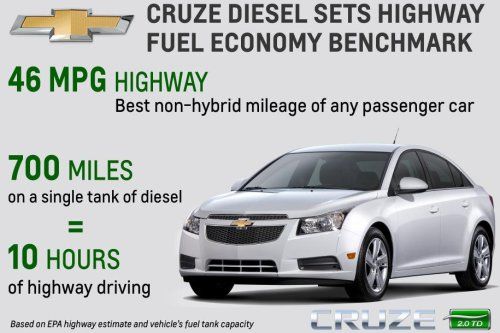
Installing a charging station at your home is a must if you're interested in purchasing an electric car. There are many options for charging stations, from basic Level 1 up to fully functional Level 3. While you may think this is a simple matter, there are a number of things to keep in mind. A Nationally Recognized Testing Laboratory certified charger will ensure that you get the best out of your electric vehicle.
You should consider a dual charger if you are looking to charge your vehicle in an attractive way. These units are designed to allow you to charge two vehicles simultaneously at a range of up to 60 amps. This is convenient and also more affordable. An entry-level dual charging station will cost you approximately $1000.

Professional installation is recommended if you are concerned about safety. You will also need to ensure it's placed in the best possible location. For example, if your local building codes call for it, you will need to have a hardwired connection.
You will need a 240-volt wall outlet, regardless of whether you're using a Level 1 charger or an advanced Level 3. This is essential to connect your device to an electrical panel. If your outlet is not 240 volt, you will need to buy an adapter. This adapter will enable you to plug your device in your dryer outlet. This has the advantage that you can take it out whenever you want.
You can also use a smart home charger to increase your battery's speed of charging. ChargePoint Home Flex EVSE has a maximum charge rate of 37 mph and can be used on either 50+ or 50+ amps. Amazon Alexa can be used to notify you when your battery is low. It can also be used to manage and control the charging process.
If you're planning on driving for a long distance, a larger charger might be a better choice. A Level 3 charger will charge your battery eight times faster than a Level 1 unit. A dual charger can charge two electric cars simultaneously. Many can be found in a gas station or commercial establishment.

An electric vehicle can be charged at no cost, which is a big advantage over gas. The car's energy battery is used to recharge the charger. The amount of energy varies depending on the model, but most models can add energy to a 35-mile commute in less than eight hours. Plugged-in chargers are also more eco-friendly because they are not susceptible to weather damage.
FAQ
What qualifications do I need to become a mechanic?
A series of exams is necessary to become a mechanic. These exams include:
-
A general knowledge exam
-
A practical exam
-
An apprenticeship test
These tests are designed to ensure that you understand the basic concepts of mechanical engineering and physics before you start working as a mechanic.
Once you've passed these tests, you'll be eligible to work as a mechanic. An apprenticeship is still required. This will require you to learn the trade.
You'll need to attend classes and workshops to learn everything you need to know about repairing vehicles. It will be necessary to work alongside experienced mechanics.
You'll need a high level of concentration and attention to detail if you want to succeed as a mechanic. You'll need to pay close attention to every aspect of vehicle repairs.
You'll need patience and persistence to become a successful mechanic. This may not be the career path that you want if you aren't able to follow directions.
If you enjoy cars and fixing them, this job could be a good fit for you.
Does it really matter what college I choose?
Not really. In terms of getting into the auto industry, there is no distinction between colleges. Some schools have better programs than others, so you might want to look elsewhere if your goal is something more specialized.
What's the difference between a mechanic and an automotive technician?
Both are related, but they are not the same. A mechanic repairs cars while an automotive technician does maintenance on them.
A mechanic must have good manual dexterity and be able to perform simple tasks quickly. They must also be able to diagnose problems accurately and repair them effectively.
An automotive technician requires more technical skills than a mechanic. They need to be able use tools such drills and wrenches, and read blueprints.
They must also be able perform complex procedures safely. They must also be familiarized in different types and electrical systems.
They should also be able understand how different parts interact.
As a result, a mechanic usually earns less money than an automotive technician. But there are many opportunities for both jobs.
Statistics
- There were 749,900 jobs available for automotive service technicians and mechanics in 2016, which is expected to grow by six percent through 2026. (jobhero.com)
- Apprentice mechanics earn significantly less hourly than mechanics who have completed training, with a median wage of approximately $14.50 an hour, according to PayScale. (jobhero.com)
- The U.S. Bureau of Labor Statistics (BLS) reports that the job outlook for automotive service technicians and mechanics is expected to decline by 4% from 2019 to 2029. (indeed.com)
External Links
How To
How to be an Automotive Technician
Automotive technicians provide repair and maintenance services to vehicles. He/she is employed at automobile dealerships, garages, service centres, and auto shops. He/she repairs cars, trucks, motorbikes and snowmobiles for customers. A technician in automotive must be able diagnose and repair problems quickly, safely, accurately, efficiently, and effectively.
An associate degree from a vocational school is required for anyone who wishes to become an automotive technician. After completing this program, he/she must pass the National Institute for Automotive Service Excellence (ASE) certification exam. ASE stands for American Society of Mechanical Engineers. There are two sections to the ASE certification test. The first section tests your mechanical skills, while the second tests your practical knowledge. To pass the test you must go to one of the authorized testing facilities. These testing sites can be found online and through your local dealer.
After passing the exam, a candidate must take a state exam before being licensed as an automobile technician. The process will vary depending on where an applicant lives. Some states require that candidates attend training courses, while others permit them to learn independently. Some states allow technicians to become licensed right away after receiving their license. While others wait until they have had at least six years of experience as an automotive technician.
An applicant should apply to a local auto shop in order to start their career as an automotive technician. Once hired, most new employees start out working as apprentices. Apprenticeship programs typically last three to four years. A student will learn to repair basic things like changing oil, adjusting brakes or replacing tires. They also learn how spark plugs are cleaned and inspect engine compartments. Some students are able to perform more advanced repairs such as replacing shocks and installing air filters. Classes are offered by most schools during regular business hours. Some schools offer evening classes, however.
After completing an apprenticeship, a student becomes a journeyman. Journeymen can spend up to five years learning how major systems work, including transmissions, differentials. They also learn how to adjust steering gear and suspensions. You will also learn how to repair complicated electrical components, as well as how to remanufacture engines and rebuild transmissions. Because they have the experience and knowledge to do the job right, employers love hiring journeymen.
A candidate who passes all the necessary exams and gets a license might be interested in opening his/her own business. According to Bureau of Labor Statistics (2010), almost 1.7million automotive mechanic jobs were on the market. This figure is expected to rise 18 percent between 2009-2020. A candidate who plans to open a shop should expect to spend many thousands of dollars on equipment and supplies.
There are many factors that affect the salary of an automotive technician, such as where they live, their education and experience. On average, a jobless person could expect to earn $20,000 annually. A person with only a high-school diploma could make around $21,000 annually. Earnings for those with an associate's diploma are approximately $24,000/year. Technicians with bachelor's degrees earn approximately $27,000 per year. Master's degree holders make around $32,000 annually. Salaries are increasing so that a professional earning less than $30,000 could expect to make $40,000 in a few years.